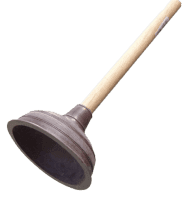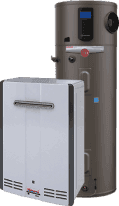
You may wonder what happens if you have a clogged sink in your kitchen. Why do kitchen sinks clog? How can you fix it? In this guide from Wilco Plumbing, we’ll discuss everything you need to know. Read on, and see what you should do if your kitchen sink won’t drain.
Are you wondering why your kitchen sink may have become blocked in the first place? In most cases, it’s due to one of the following issues – or a combination.
This is the most common cause of blocked drains in the kitchen, especially if you often put food scraps down the drain. Oil may be liquid when you pour it into your sink, but it can quickly solidify as it travels down your drain pipes.
Over time, fat will narrow your lines and restrict water flow. Then, it will catch other food scraps that may otherwise be rinsed down your drainage system and create large, difficult-to-remove clogs.
This is another common reason that kitchen sinks become blocked. Whenever you put food down the sink, it can be caught in your pipes or on grease and other obstructions and create a clog. This is especially common with coffee grounds, rice, and other foods that absorb water.
They may rinse the sink cleanly at first, but if they build up and get stuck, they’ll swell up and absorb water until they clog your drain. And yes, this can happen even if you have a garbage disposal.
To stay safe and avoid clogs, always scrape your plates and other dishes into the trash before you rinse them and clean them. Keeping food scraps out of your pipes is the best way to stop kitchen drain blockages before they happen.
Soap scum is a common problem if you have “hard water” with a large concentration of calcium, magnesium, and other minerals. When these minerals contact soap and other “surfactants,” they create a filmy residue called soap scum.
This residue can build up over time and contribute to the formation of clogs. Hard water may also develop deposits that cause your pipes to narrow over time. If you have hard water, investing in a water softener for your sink can help eliminate this issue in the future.
Your garbage disposal may be powerful – but it can still be clogged or even damaged if you put too much food into it. It would be best only to put tiny food scraps down your garbage disposal.
And in particular, you should avoid putting very fibrous foods like broccoli, pineapple, and others down the garbage disposal, as well as coffee grounds, eggshells, animal bones, pasta, rice, and bread. These can all clog and jam up your disposal or clog up your drain pipe.
Now that you know why kitchen sink blockages happen, you may wonder how to unclog your sink if it’s not draining correctly. Read on to find out!
Not ready to call a plumber? That’s fine! Sometimes, you can clear a kitchen sink blockage on your own.
Chemical drain cleaners are powerful and can destroy food and remove grease from the drain, eliminating the blockage. It’s always a good idea to have a drain cleaner on hand just in case your kitchen sink becomes clogged.
This is a good option for clearing clogged drains if you don’t have a chemical drain cleaner readily accessible. Start by pouring a cup of baking soda into the drain, then run a cup of vinegar.
You can rinse the vinegar and baking soda with water to ensure it reaches the clog. Then, the chemical reaction will help dislodge food scraps and other particles.
Some dish soap can help lubricate the clog and break it apart. We recommend pouring a generous squirt of dish soap down the drain and following it up with hot water.
The heat of the water and the lubricating effects of the dish soap can be enough to break apart clogs and drain blockages in some cases.
A plunger can create suction that breaks the clog apart and allows it to be rinsed down the drain. Position the plunger over your drain, use water or petroleum jelly for a tight seal, and then plunge away!
Cover the other drain if your sink has two drains to ensure maximum effectiveness.
If your garbage disposal is clogged, you may be able to dislodge the clog manually. Most garbage disposals allow you to crank the impeller plate by hand manually.
Follow your manufacturer’s instructions to perform this task, and see if this dislodges the food and allows your garbage disposal to drain correctly.
Sometimes, DIY, at-home fixes won’t fix the problem and clear blocked drains. The clog may be very far down your drain pipes, or it may just be too large and difficult to remove on your own.
But at Wilco Plumbing, we can help with drain blockages of all types. No kitchen sink drain is too harsh for our expert plumbers in Sydney. So don’t wait – contact us online or call (02) 9186 3371 to speak to one of the experienced plumbers in Sydney and get the help you need to restore your kitchen sink immediately.

Blocked Drains
Cleared

Hot Water
Cashback*
If you book online today!
Fill out your details below and we’ll contact you ASAP!!